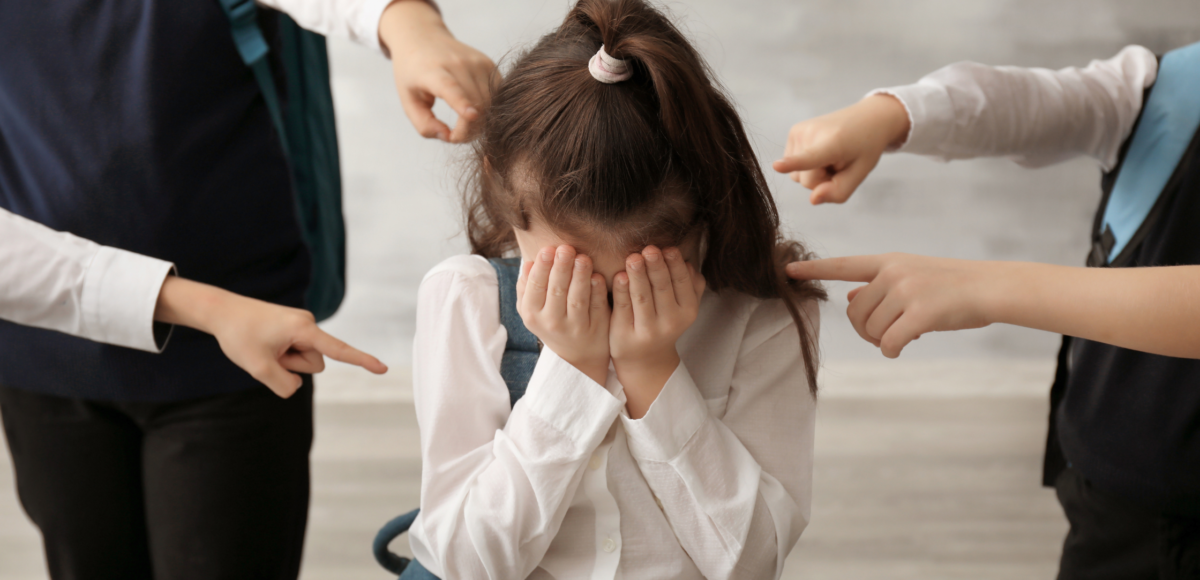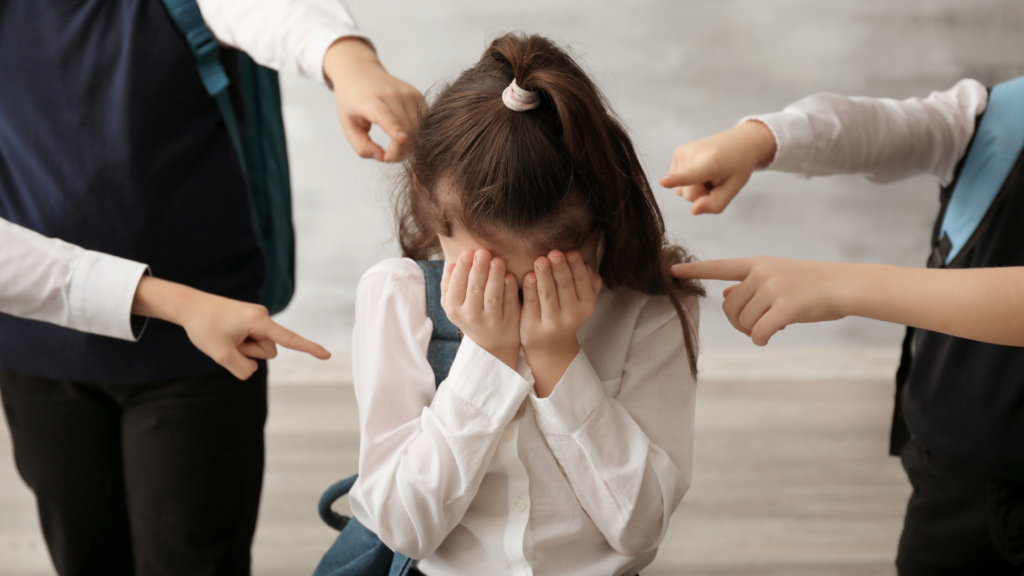
Bullying and Mental Health: How to Support Your Child
This post on Bullying is written by Kathryn McPhillips, M.S.
Back to school is an exciting time for children, parents, and teachers! With that exciting time comes a potential challenge for your children: bullying. Bullying is characterized as an aggressive behavior that is repetitive and meant to cause harm to another individual. It also involves a power imbalance. It can manifest in different forms, such as verbal, physical, social, and virtual. Verbal bullying includes using hurtful words, such as teasing or name-calling another individual, while physical bullying involves injuring another individual or damaging their physical possessions. Social bullying involves harming another individual’s relationships or reputation, such as intentionally excluding another child or spreading rumors about another individual. Finally, virtual or cyberbullying is about sending threats or spreading false information about another individual online.

Bullying has many adverse effects on children’s mental health. In the short term, bullying can lead to feelings of guilt and shame, low self-esteem, thoughts about harming oneself, sleep issues, and social isolation. It can also lead to feelings of powerlessness and loneliness. In the long term, children who have been victims of bullying are more susceptible to developing mental health conditions, such as anxiety and depression, and may experience difficulty with developing and maintaining healthy relationships. Therefore, if your child is a victim of bullying, it is crucial to know the potential warning signs and how to support them best.
Some common warning signs of bullying include:
Avoiding interactions

Children may become socially withdrawn and avoid social interactions with their peers if bullied. They may spend less time with friends and have trouble making new friends.
Mood changes
Mood changes may also be a warning sign of bullying. These mood changes may be most apparent after school and participating in activities with their peers. Children who are bullied may experience anxiety, sadness, or irritability. They may also become upset quickly or become aggressive with their siblings.
Lost or damaged possessions
If a child is bullied, they might have lost or damaged possessions. For example, the bully may rip or tear their clothes, books, or other personal items. This can be an exceptionally telling sign if your child says they forgot their school supplies and homework at school, but they do not typically forget items.
Unexplainable injuries

If a child is a victim of physical bullying, they may have injuries from school, such as bruises or cuts, that they are not able to explain. The child may also use the same excuse to explain how the injury occurred.
Fear of school
A child who is bullied might have a fear of going to school. They may make excuses, such as saying they are sick or have stomachaches, so they do not have to go to school. When the child is at school, they may have difficulty focusing on class, which can negatively impact their academic performance. Children who are bullied may also lose interest in school activities that they once found enjoyable.
Sleep challenges and nightmares
Children who are victims of bullying may have a disturbed sleep schedule, as they have trouble falling asleep and staying asleep due to the anxiety from bullying. They may also have nightmares, which can further negatively impact their sleep quality.
Now that you know the potential warning signs of a bullying victim, it is crucial to understand how to support your child and their mental health if they are bullied.
Building confidence

Parents can build up their child’s confidence so that bullying does not affect their self-esteem. A child’s confidence can be built through praise for their positive behaviors and becoming involved in extracurricular activities that they enjoy. Participating in an extracurricular activity can give the child a sense of mastery.
Collaborate with the school
Parents can collaborate with their child’s school if their child is bullied. Bringing this concern to school personnel is imperative, as the teachers and staff can play a crucial role in stopping bullying. Teachers can make the child feel safe in the classroom by rearranging the classroom seats or bus seats.
Develop open communication at home
It is essential to develop an open communication system at home so the child feels as though they can trust their parents. Ask the child about the good and bad parts of their school day. If the child does experience bullying at school, they can communicate this to their parents due to open communication.
Listen and validate their feelings

When your child gets bullied, remind them that it is not their fault and that you are always there for them. Parents should empower their children. Ensure the child understands that you believe in their experience and that it is okay to feel upset. It is also vital for parents to remain calm when the child is describing their experience. It is easy for parents to get worked up over someone mistreating their child; however, they must remain calm.
Teach coping strategies
Parents can teach children a few coping strategies to deal with bullies. Parents can teach their children to stand up to bullies by telling them to “stop,” ignoring the bully and moving away, or telling the teacher.
In Summary ...
Bullying manifests in many different forms. It can have many negative impacts on children’s mental health, so parents must be aware of the warning signs to seek help for their children as early as possible. Children can display warning signs of bullying behaviorally, physically, and socially.
Some warning signs of being a bullying victim include a fear of going to school and lost or damaged possessions. Parents should also know how to support their children best if they are a victim of bullying. Some actions parents can take include collaborating with the school, developing an open communication system at home, and listening and validating their child’s feelings.
Check out our other popular blog posts:
